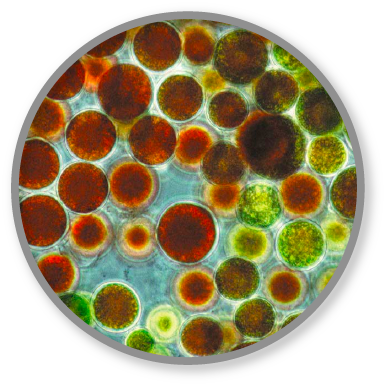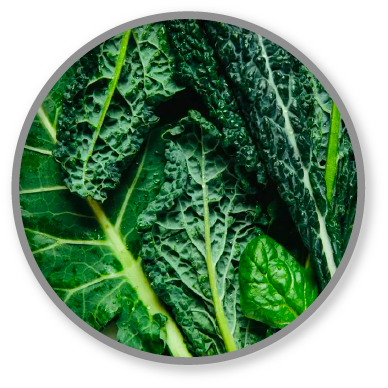We’ve been told to “eat a rainbow” and incorporate a variety of colorful foods into our diet for good reason. Vividly colored plants contain phytonutrients, including carotenoids, which offer a spectrum of health benefits—from supporting vision and skin, to promoting heart and brain health, to combating oxidative stress and protecting cells, to lowering risk for a variety of health conditions.
Carotenoids are pigments, typically yellow, red or orange, that contribute to the bright color of many fruits and vegetables. Despite humans not being able to synthesize carotenoids, their consumption is vital. While there are over 600 different carotenoids that exist in nature, below are 5 of the most common and significant for humans.
1. Vitamin A: A Duo of Alpha and Beta Carotene

- Vision Supporters: Alpha and beta carotene are precursors to vitamin A, which is a cornerstone for maintaining optimal vision. They play a pivotal role in the function of the retina and contribute to the synthesis of rhodopsin, a crucial pigment in the eyes that facilitates low-light and night vision.
- Antioxidant Allies: These carotenoids serve as potent antioxidants, scavenging free radicals and protecting cells from oxidative damage.
- Immune Protectors: Vitamin A is crucial for a robust immune system. It aids in the production and function of white blood cells, fortifying the body’s immune defense.
2. Astaxanthin: Nature’s Potent Antioxidant

- King of Carotenoids: Astaxanthin, found in microalgae and seafood, is a powerhouse antioxidant. Its ability to quench free radicals is unparalleled, making it a vital component in the defense against oxidative stress.
- Skin Shield: Its benefits extend to skin health, promoting elasticity and reducing the signs of aging. It acts as an internal sunscreen, offering protection against UV-induced damage.
3. Zeaxanthin and Lutein: Guardians of Eye Health

- Macular Defenders: Zeaxanthin and lutein are concentrated in the retina, particularly the macula. They act as a natural filter, absorbing harmful high-energy light and protecting against age-related macular degeneration. This is important in reducing the impact of the use of digital devices that are a normal part of today’s daily life.
4. Lycopene: Red Radiance for Heart Health

- Heart’s Safeguard: Lycopene, responsible for the red hues in tomatoes, boasts cardiovascular benefits by supporting healthy blood pressure and reducing oxidative stress.
- Anti-Inflammatory Ally: Lycopene’s anti-inflammatory properties contribute to its protective effects against chronic health conditions.
5. Saffron (Crocin) Extracts: Golden Threads of Well-Being

- Mood Enhancer: Saffron, rich in crocin, has been associated with mood regulation, offering potential benefits in managing stress and promoting emotional well-being.
- Eye Nourisher: Crocin in saffron extracts may contribute to eye health by protecting against oxidative stress and supporting the retinal cells.
Obtaining a variety and sufficient amount of carotenoids from diet alone can be challenging. Dietary preferences, lifestyle choices, and individual variations can contribute to nutrient gaps. Supplementation is a practical way to ensure the body receives a full spectrum of carotenoids for optimal health.

